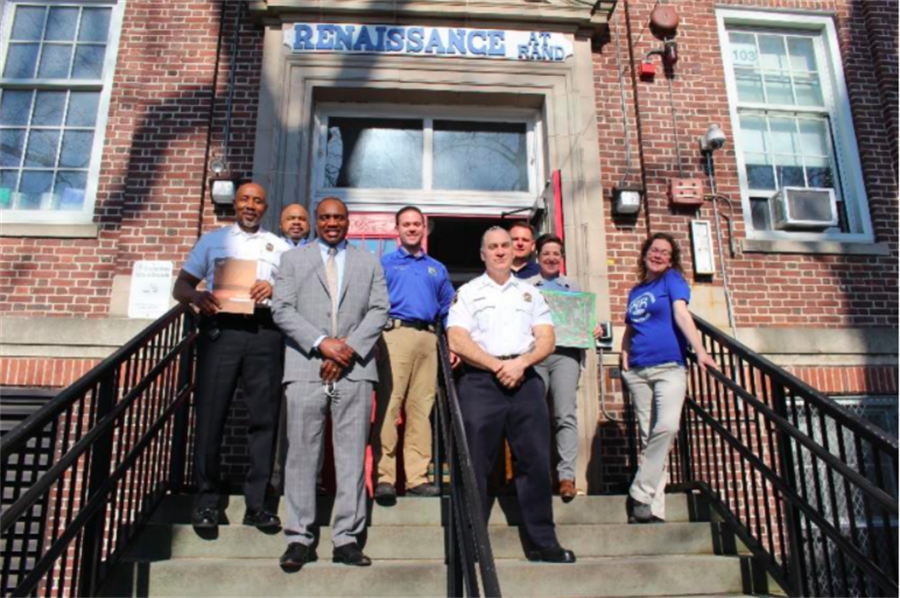
$400K For Not Working? Sweet Deal for Montclair Principal.
April 20, 2023The Pandemic Changed Special Education: How One New Jersey School is Reimagining the Classroom
April 21, 2023Will the State Senate Really Privilege Politics Over the Needs of 60,000 Students?
A bill that would provide facilities funding equity for public charter schools is stuck in legislative limbo. The stakes are high: New Jersey’s charters, heavily favored by Black and Brown parents, are located almost entirely in low-income Abbott/SDA districts but they get no facilities aid. In contrast, traditional district schools in the same municipalities get 100% of their facilities funded by the state. The National Alliance for Public Charter Schools considers this inequity a major flaw of our state charter school law, albeit one easily rectified by the bill in question, A4496/S3247.
Reasonable, right? There’s a reason most states provide this aid; only 14 don’t. In fact, the bill proposal has already cleared both the Assembly Education and Appropriations committees. Need more convincing? Here’s the NJ Public Charter Association:
Despite leaking pipes, broken boilers, crumbling roofs, crowded classrooms and an estimated $900 million in facilities needs, charters have never had access to facilities funding. Conversely, since 2000, New Jersey has invested over $17 billion in school construction for SDA districts, regular operating districts (RODs), and vocational schools. All while charter schools have been forced to pay for their school facilities through operating dollars, money that would otherwise be spent on teachers’ salaries and in the classroom.
So what’s the hold-up? Why has the Senate not even allowed discussion of the bill?
Politics.
First, NJEA, a major source of campaign funds for Democrats, is an opponent, going as far as to call for a moratorium on any new charter or charter expansions. (Gov. Murphy obeyed that order until last year; Tom Moran speculates he is moderating his stance as he prepares for a presidential campaign.)
Debra Cornovaca, director of government affairs for NJEA, said of the bill, “if the state has a certain amount of money intended for the SDA, any amount directed to charter schools is, by definition, taken away from traditional public schools. It’s really a zero-sum game, frankly,” Cornovaca said.
So, like Marie Antoinette after being told that her starving peasant subjects had no bread, Cornovaca blithely says, “let them eat cake.”
Second, Senate Education Committee Chair Vin Gopal is no fan: he told the state school boards association that the public should get to vote on charter renewals—another way of saying “no more charters” because most voters in a district don’t have children in charter schools.
Third, Senate Majority Leader Teresa Ruiz is, it’s said, close friends with Newark Superintendent Roger Leon, who is on a power-grabbing crusade to shut down the highest-performing charter sector in the country.
In other words, the obstacles to this bill are non-educational adult concerns that ignore the learning needs of students stuck in districts like Newark and Asbury Park.
At a recent Assembly Budget Committee hearing, Tapinto reports, Corey Madison, a senior at Newark’s charter called North Star Academy, pleaded with legislators to entertain equity and fairness in their debate about the charter facilities bill. (I interviewed Corey last year, as well as his mother Dana and sister Kyela.)
‘To not include public charter school students in future facilities funding would be inherent inequity,’ Madison told the lawmakers. ‘It would continue to sow seeds of division that did not previously exist.’ He stressed the need to put ‘public charter school students on equal footing….You can imagine how hard it is to find safe, secure and modern facilities in Newark. However, our students, like all other public-school students, deserve to learn in a building that is safe and secure.’
What was the response of Assembly Budget Chair Eliana Pintor Marin, who represents Newark? “We’re very proud of you,” she said after everyone had stopped applauding for Corey. But, echoing NJEA’s language, she told him, we can’t “draw down on funds that traditional schools are in such need of.”
Leaders of the State Legislature appear content to defer to NJEA, turn up their collective nose, and tell Corey, Kyela, and 60,000 other public charter school students to have some cake. Will someone enlighten them?




